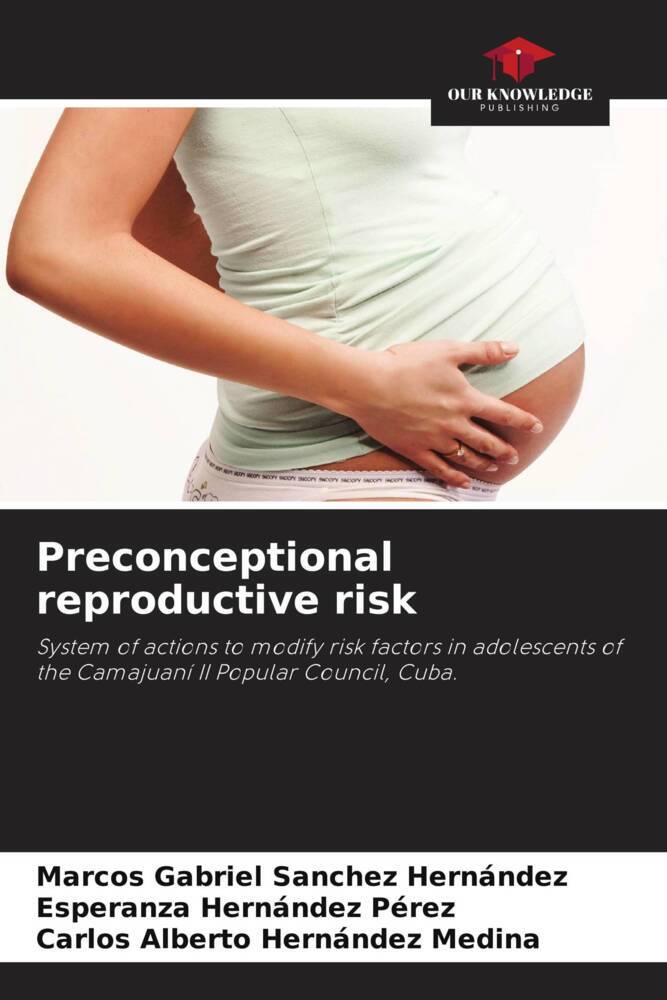
Zustellung: Sa, 31.05. - Di, 03.06.
Versand in 4 Tagen
VersandkostenfreiBestellen & in Filiale abholen:
A cross-sectional descriptive observational study was carried out to design a system of actions to contribute to modify the preconceptional reproductive risk factors in adolescents of the Camajuaní II Popular Council, Villa Clara, Cuba, from March 2022 to May 2023. From the universe of 262 adolescents from 10 to 19 years old, a random sample of 65 young women was selected. Almost all the adolescents are in school; many are already sexually active, most of them unprotected; the early onset of sexual relations and the tendency to change partners frequently stand out. Several have become pregnant and have had abortions as a solution. Toxic habits are a systematic practice and there was evidence of a low level of information on contraceptive methods, risks of pregnancy and sexually transmitted diseases, repercussions of toxic habits and other biological, psychological and socioeconomic factors on their sexual and reproductive life. The cognitive needs identified served as the basis for the elaboration of a system of educational actions aimed at strengthening information on pre-conceptional reproductive risk factors.
Produktdetails
Erscheinungsdatum
28. April 2025
Sprache
englisch
Seitenanzahl
88
Autor/Autorin
Marcos Gabriel Sanchez Hernández, Esperanza Hernández Pérez, Carlos Alberto Hernández Medina
Verlag/Hersteller
Produktart
kartoniert
Gewicht
149 g
Sonstiges
Großformatiges Paperback. Klappenbroschur
ISBN
9786206750369
Bewertungen
0 Bewertungen
Es wurden noch keine Bewertungen abgegeben. Schreiben Sie die erste Bewertung zu "Preconceptional reproductive risk" und helfen Sie damit anderen bei der Kaufentscheidung.










